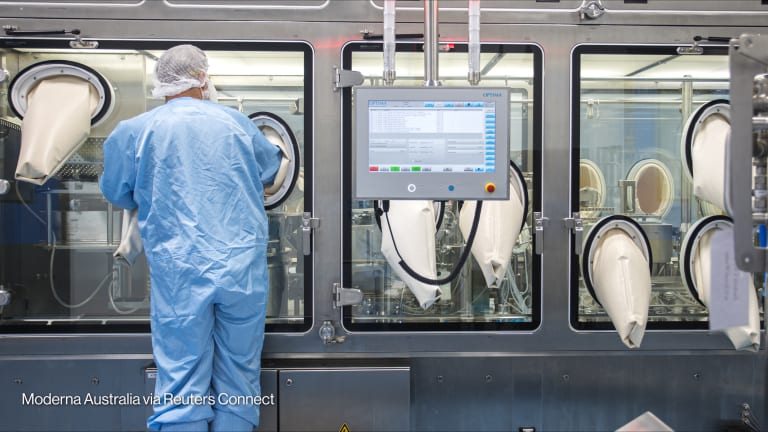
Countries involved in COVAX, the global initiative aimed at equitable access to COVID-19 vaccines, now know how many doses of Pfizer-BioNTech and AstraZeneca-University of Oxford vaccines to expect in the coming months.
A country-by-country forecast was released Wednesday by the Coalition for Epidemic Preparedness Innovations; Gavi, the Vaccine Alliance; the World Health Organization; and UNICEF.
Countries will receive doses in proportion to their population size. For example, Afghanistan will receive 3 million doses, while Namibia receives about 127,000. These doses are expected to reach about 3.3% of the total population of the 145 facility participants during this time frame. Vaccines are expected to go to the most vulnerable populations, including health care workers.
“This is really, really key for all countries to be able to prepare and plan for the rollout and effective introduction of this vaccine,” said Ann Lindstrand, Expanded Programme on Immunization coordinator at WHO, during a press conference.
While the COVAX Facility aims to provide access to almost 2.3 billion doses of vaccines this year, there are concerns that this target won't be met due to challenges around funding, supply volumes, regulatory approval, and country readiness to roll out vaccines. Because of this, Lindstrand warned that the figures provided to countries are subject to change and reflect estimated vaccine availability from manufacturers.
Forecast figures include 240 million doses of the AstraZeneca-Oxford vaccine supplied through the Serum Institute of India, and 96 million doses of the same vaccine under an advance purchase agreement for the first half of the year. Delivery of these vaccines is expected to start in late February.
The facility was initially supposed to receive 153 million doses of the AstraZeneca-Oxford vaccine through an advance purchase agreement, but delays in securing WHO emergency use listing for vaccine candidates mean that some shipments will only be available by the third quarter, said Dr. Seth Berkley, chief executive officer at Gavi.
The COVAX Facility will also distribute 1.2 million of the 40 million expected doses of the Pfizer-BioNTech vaccine in the first quarter of this year.
Due to the challenges around the vaccine’s ultracold chain requirements and the limited supply available, only 18 countries will receive the Pfizer vaccine in this batch. Allocations were made based on criteria such as participant readiness and the assessment of health care worker exposure in countries.
UNICEF also announced Wednesday that it concluded a long-term supply agreement with the Serum Institute of India giving it access to the intellectual property of vaccines created by AstraZeneca and Novavax. This will allow it and its procurement partners to access up to 1.1 billion doses of vaccines for around 100 low- and lower-middle-income countries, at roughly $3 per dose.
“This is a great value for COVAX donors and a strong demonstration of one of the fundamental principles of COVAX: that by pooling our resources, we can negotiate in bulk for the best possible deals,” said Henrietta Fore, executive director at UNICEF.









